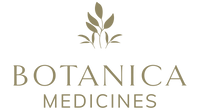Description:
Pomegranate is a strong antiparasitical, antibacterial and cardioprotective herb
Dosage:
5-11 mls per day, 40-80 mls per week
Parts Used:
Seed/Rind
Main Actions:
- Anthelmintic
- Antiatherosclerotic
- Antibacterial
- Anti-inflammatoryAnti-cancer
- Anti-diabetic
- Antifungal
- Antihypertensive
- Antimicrobial
- Antioxidant
- Antiparasitic
- Antiprotozoal
- Anti-ulcer
- Antiviral
- Cardioprotective
- Immunomodulating
- Inhibitor of biofilm formation
- Neuroprotective
- Radioprotective
- Wound healing
Key Indications:
- Alzheimer’s disease
- Antibiotic synergist (potentiates chloramphenicol,
- gentamicin, ampicillin, tetracycline, and oxacillin against
- Staphylococcus aureus)
- Atherosclerosis
- Bacterial infections – Gram-positive bacteria: Staphylococcus aureus, Listeria monocytogenes, Streptococcus spp., and Bacillus spp.
- Gram-negative bacteria: Escherichia coli, Campylobacter jejuni, Salmonella spp., Shigella spp., Vibrio spp., Pseudomonas aeruginosa, Klebsiella pneumonia, Proteus spp., Yersinia enterocolitica Helicobacter pylori
- Cancer prevention
- Diabetes and diabetic complications
- Diarrhoea
- Dysbiosis – increases Bifidobacterium while inhibiting pathogenic bacteria
- Fungal infections – Candida
- Gastritis
- Gingivitis
- Hypertension
- Inflammatory bowel conditions
- Mycobacterium infections
- Mycoplasma infections
- Obesity
- Parasitic infections – Giardia spp., Blastocystis spp., Entamoeba histolytica, Cryptosporidium parvum, Trichomonas vaginalis, Plasmodium falciparum, Schistosoma mansoni and intestinal roundworm
- Peptic ulcer
- Photoageing and photochemoprevention
- Viral infections
- Influenza virus, herpes virus, poxviruses, human immunodeficiency virus, and human notovirus
- Wound healing (topical application)
Major Safety Issues:
None known

